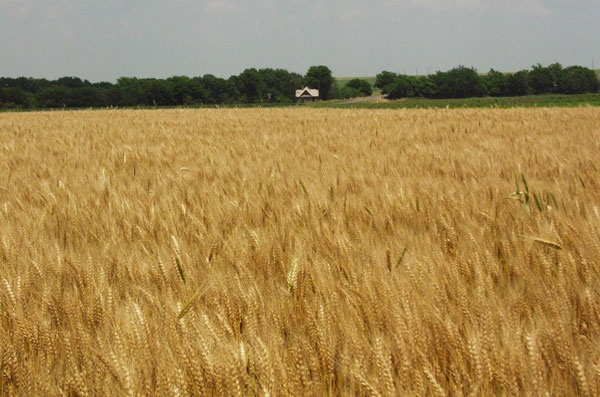US science successfully decodes the genome of wheat
A group of US scientists on November 28 said they have made great strides in decoding the genome of wheat, an essential agricultural product, inherently famous for its complexity.
Published in the journal Nature, the scientists said it analyzed about 94,000-96,000 genes of wheat plants. The results show that the genome of this important crop is nearly five times the size of the human genome. The genes of this plant are a three-genome, reflecting the genetics of wheat plants from 8,000-year-old generations.

Wheat field
The team said that the successful decoding of the wheat genome will open up opportunities for hybrid breeders to create plant varieties that are more resistant to flooding, drought, better saline soil, bringing Higher output.
Professor of crop science Jan Dvorak of the University of California, Davis (USA) said: "This work brings us closer to identifying a comprehensive and detailed genome of wheat. Despite the genome not yet fully decoded but now scientists can read DNA hundreds of times faster than the system used to program human genomes. "
Wheat together with rice and corn is one of the three major agricultural crops that provide the main source of food for the world.
Dvorak said the world population is expected to increase from 7 billion to 9 billion by 2050. It is clear that without more land to cultivate, it is necessary to develop more productive crops. can meet the growing demand for food.
- The first successful decoding of the wheat genome structure
- Successful breeding of wheat tolerates salinity
- For the first time, Vietnam has successfully built the Vietnamese genome
- Science successfully deciphered the hookworm genome
- First sketches the genome map of a family
- Sweet wheat was born
- Will salty wheat solve the food crisis?
- Create drought-resistant, high-yield wheat varieties
- Scientists successfully decode the spider's genome
- There will be many delicious apples thanks to the new genome map
- Wheat is aging prematurely because of climate change
- Successfully decoding the genome of a 45,000-year-old man
 Why do potatoes have eyes?
Why do potatoes have eyes? 'Tragedy' the world's largest carnivorous life: Death becomes ... public toilet
'Tragedy' the world's largest carnivorous life: Death becomes ... public toilet Tomatoes were once considered 'poisonous' for 200 years
Tomatoes were once considered 'poisonous' for 200 years Detecting microscopic parasites on human face
Detecting microscopic parasites on human face